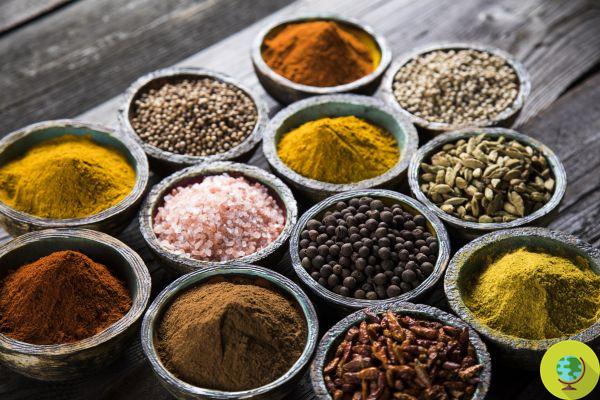
A new study investigated the quality of the herbs and spices on the market and found that 27% of the products sold are sophisticated
Don't store avocado like this: it's dangerousI herbal products, sold worldwide as food or supplements, are considered safe and risk-free as they are perceived as natural.
Unfortunately, however, often the controls on loose herbs, spices or herbal extracts are scarce or ineffective and it is not uncommon for them to be found on the market sophisticated products, which contain substances other than those indicated on the label.
Il market for herbs, spices and their derivatives in fact, it has important economic implications and since many plants are particularly expensive, it is not uncommon for producers to alter products, for example by adding other drugs with similar appearance but lower price and without properties to a plant drug.
A new study published in Frontiers in Pharmacology investigated the extent of this phenomenon, analyzing almost 6 thousand herbal and spice products sold in 37 countries around the world.
According to the results of this research, 27% of the herbs and products obtained from them are sophisticated, adulterated or counterfeit, and the content does not reflect what is indicated on the label.
The percentages of sophisticated products vary significantly from one continent to another. Australia ranks first with 79% of registered adulterations, followed by South America (67%) and Europe (47%). The situation is improving in North America, where non-compliant products are 33%, in Africa (27%) and in Asia (23%).
Within the individual continents, then, the major differences were found in Brazil, where 68% of herbal products are well adulterated. Other countries have much lower percentages, with 32% counterfeit herbs in Taiwan, followed by India (31%), the United States (29%), Malaysia (24%) and Japan (23%).
I herbal products they may contain contaminants, substitutes, ingredients not indicated on the label or even plant species completely different from those declared.
Le sophistication they can be accidental or intentional, often in this case motivated by economic interests.
The analyzes of this new study were done using DNA tests on herbs the researchers agree that thanks to the ever increasing analytical sensitivity, it is possible that the percentage of sophisticated herbs found on the market will increase.
According to the researchers, the results of this study should serve push the authorities to carry out more checks, as such adulterations and counterfeits pose a probable risk to human health.
Given the growing consumer demand for herbs and derivatives, it is essential to ensure safety of these products through more effective analyzes.
Meanwhile, consumers can defend themselves by avoiding purchases from unknown retailers, especially online or at flea markets. The advice is to contact herbalists and pharmacies, able to guarantee the seriousness, professionalism and correctness of the producers.
Read also:
- Spirulina and seaweed supplements: contain too many heavy metals
- Dietary Supplements: Do They Really Work? They are dangerous? The best and worst of the 120 products analyzed
- Food supplements: really useless or too effective?
Tatiana Maselli


























